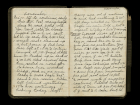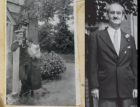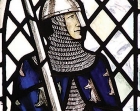Historical Argument
One of the most widely shared misconceptions among young people is that there can be one ‘true’ story of the past and that the value of any given interpretation depends on how closely it approximates to this ideal account. Enabling students to recognise that what historians are actually doing when they write about the past is advancing a series of claims – presenting and defending an argument – will help them not only in handling different interpretations but also in improving their own writing. Read more
-

Move Me On 192: analytical focus with diverse histories
ArticleClick to view -

Short cuts to deep knowledge
ArticleClick to view -

Historical learning using concept cartoons
ArticleClick to view -

Move Me On 186: trainee provides little scope for students to use their knowledge in analysis/argument
ArticleClick to view -

Year 7 use oral traditions to make claims about the rise and fall of the Inka empire
ArticleClick to view -

The mechanics of history: interpretations and claim construction processes
ArticleClick to view -

Being an historian
ArticleClick to view -

Why does anyone do anything? Attempts to improve agentive explanations with Year 12
ArticleClick to view -

Year 9 use sources to explore contemporary meanings and understandings of appeasement
ArticleClick to view -

Teaching Year 9 to argue like cultural historians
ArticleClick to view -

How introducing cultural and intellectual history improves critical analysis in the classroom
ArticleClick to view -

Family stories and global (hi)stories
ArticleClick to view -

Modelling the discipline
ArticleClick to view -

Historical and interdisciplinary enquiry into the sinking of the Mary Rose
ArticleClick to view -

The dialogic dimensions of knowing and understanding the Norman legacy in Chester
ArticleClick to view -

New, Novice or Nervous? 174: Building students' historical talk
ArticleClick to view -

Structuring a history curriculum for powerful revelations
ArticleClick to view -

Dealing with the consequences
ArticleClick to view -

Couching counterfactuals in knowledge when explaining the Salem witch trials with Year 13
ArticleClick to view -

From flight paths to spiders’ webs: developing a progression model for Key Stage 3
ArticleClick to view

